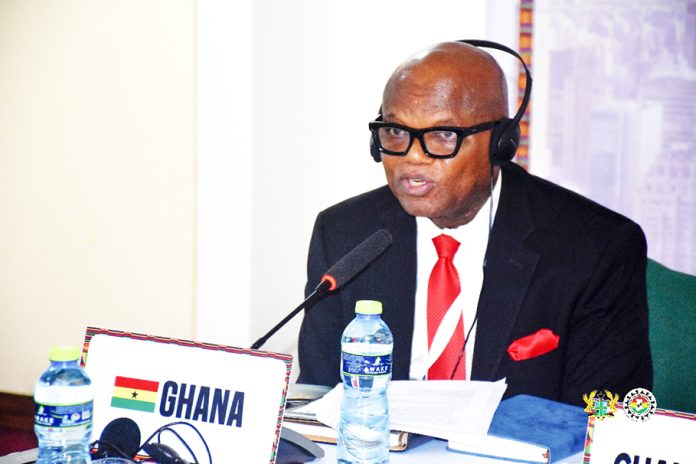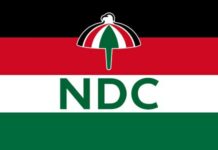The meeting of the Bureau of the African Union – Specialized Technical Committee on Public Service, Local Government, Urban Development and Decentralization (AU-STC No. 8.) has been held in Accra, Ghana.
The high-level meeting brought together experts and distinguished guests from Tunisia, Congo, Uganda, Ghana, and Lesotho to discuss pivotal issues in Public Service, Local Government, Urban Development, and Decentralization.
On behalf of the President of Ghana, the Minister of Local Government, Decentralization and Rural Development, and the Local Government Service Council, Dr Nana Ato Arthur, Head of the Local Government Service in Ghana, conveyed the honour of hosting the meeting of the Bureau of the African Union – Specialized Technical Committee.
He described the efforts of member states towards the meeting as a testament to their collective commitment to advance the Agenda 2063, particularly in public service, local government, urban development, and decentralization.
He said the meeting was to discuss the implementation of the decisions of the AU Fourth Ordinary Session, the status of the sub-committee’s work plan (2022-2024) and the upcoming Africa Urban Forum in Addis Ababa.
He emphasized the importance of addressing climate change and digital governance and encouraged open dialogue and collaboration to ensure sustainable development. He emphasized the importance of addressing climate change and digital governance and encouraged open dialogue and collaboration to ensure sustainable development.
Dr. Ato Arthur admitted that the African Union-Specialized Technical Committee (AU-STC No.8) was instituted at the opportune time, especially in recent times, when issues on climate change, digital governance, the use of artificial intelligence and local economic development had gained currency.
The AU-STC No.8, according to Dr Arthur, had key roles to play in addressing some of the imminent threats to building an effective Public Service, Decentralisation and Urban Development in Africa.
He expressed the hope that the deliberations would contribute meaningfully to the realization of the aspirations of the Agenda 2063-The Africa We Want. Ambassador Bankole Adeoye, the Commissioner for Political Affairs, Peace and Security, African Union Commission (PAPS AUC), expressed gratitude to the government and the people of Ghana for hosting the meeting and the hospitality extended to the team and admitted that the mandate of the STC No. 8 remains enormous and therefore required more partnership to achieve the objectives of the AU’s Agenda 2063.
Ambassador Bankole was convinced that the recommendations of experts would undoubtedly contribute to the achievement of the set objectives expected from the meeting.
He entreated members to commit to enhancing public service, local governance, urban development and decentralization for the fundamental progress of the African Continent.
Riding on the AU anthem, “we do not just gather to celebrate our achievements together but also to dedicate ourselves to rise together to reaffirm our commitment and defend our liberty and unity”, the Minister for Local Government, Decentralisation and Rural Development, Mr Martin Adjei Mensah-Korsah expressed optimism that the momentum of member states will not be lost until all the outstanding works are completed and the objectives achieved.
He assured members of Ghana’s commitment towards the goals and objectives of the Bureau.
The high-level participants included the Minister of Environment and Sustainable Development of Tunisia who doubles as the Chairman of AU STC No. 8, Hon. Leila Chikhaoui Mahdaoui; the AU Commissioner for Infrastructure and Energy, Dr Armani Abou-Zeid; the Commissioner for Political Affairs, Peace and Security (PAPS AUC), Bankole Adeoye and the Ambassador of the Kingdom of Lesotho to Ethiopia and the permanent representative to the AU, Sekete.
The meeting was organised jointly by the Department of Political Affairs, Peace and Security, Ministry of Local Government, Decentralisation and Rural Development and the Office of the Head of the Local Government Service (OHLGS).









